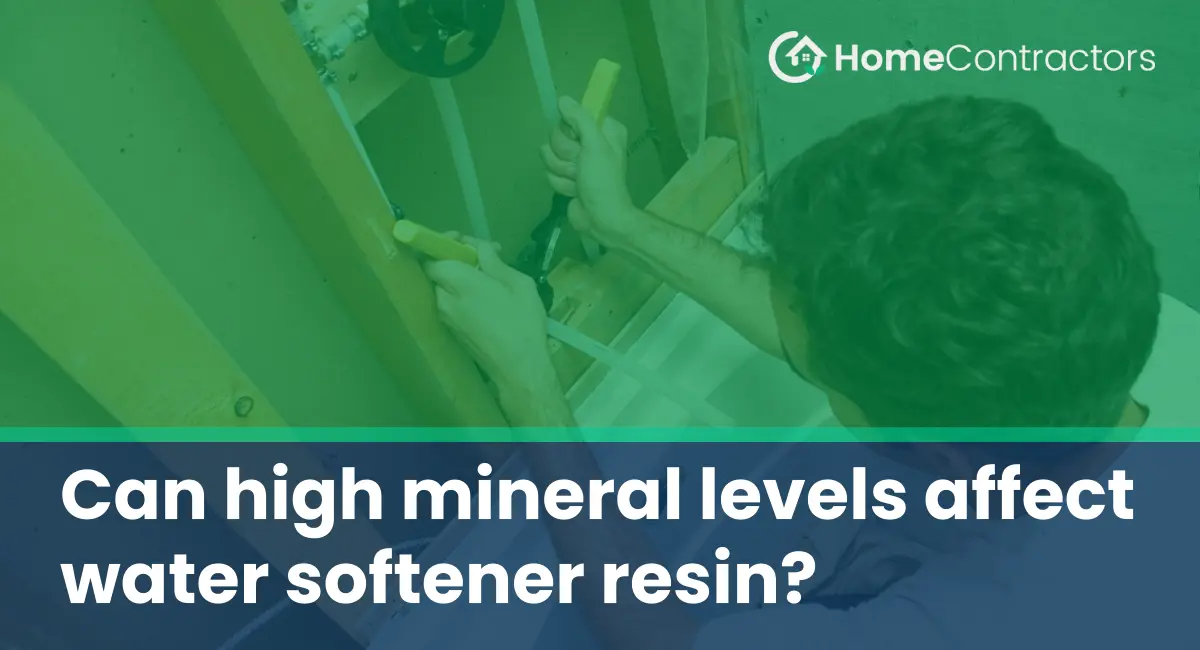Water softeners are essential devices that help remove minerals from hard water and improve the quality of water in our homes. These devices are equipped with resin tanks that contain small resin beads responsible for the ion exchange process. However, high mineral levels in water can have a significant impact on the effectiveness and lifespan of the water softener resin. In this article, we will delve into the details of how high mineral levels can affect water softener resin and provide insights into potential solutions.
Understanding Water Softener Resin
Before we dive into the effects of high mineral levels, it’s crucial to understand how water softener resin works. Water softeners utilize a process called ion exchange, where hard water passes through a resin bed containing resin beads. These beads are negatively charged and attract and capture positively charged mineral ions such as calcium and magnesium. As a result, the hard water is softened, and the minerals are replaced with sodium ions, which are more soluble and do not cause scaling.
The Impact of High Mineral Levels
- Reduced Capacity: When the mineral levels in water are high, the resin bed can become quickly saturated. This means that the resin beads’ capacity to capture more mineral ions becomes limited, leading to reduced effectiveness in softening the water. As a result, the water may still contain traces of hardness, defeating the purpose of the water softening process.
- Resin Fouling: High mineral levels can cause resin fouling, which occurs when minerals and impurities accumulate on the surface of the resin beads. This fouling prevents proper ion exchange and reduces the efficiency of the water softener. Over time, the fouling can build up and create a thick layer, making it challenging for water to flow through the resin bed.
- Resin Breakdown: Water with high mineral levels can cause the resin beads to break down over time. The excessive mineral content can cause the resin beads to lose their structural integrity, leading to chipped or cracked beads. Such damage can result in resin bed failure, where the beads can disintegrate or clump together, rendering the water softener ineffective.
Possible Solutions
- Pre-treatment: If your water source has high mineral levels, a pre-treatment system can be installed to remove some of the minerals before they enter the water softener. This may include various filtration methods, such as a sediment filter or a reverse osmosis system, that can remove larger particles or dissolved minerals respectively.
- Regular Cleaning: Performing regular maintenance and cleaning of the resin bed can help mitigate the negative impacts of high mineral levels. This can involve backwashing the resin bed to remove accumulated debris and built-up minerals. Additionally, using resin bed cleaners specifically designed for water softeners can be beneficial in preventing fouling and maintaining the resin’s performance.
- Resin Replacement: In severe cases where high mineral levels have caused significant damage to the resin beads, replacement may be necessary. Consult with a professional technician to assess the condition of the resin bed and determine if a replacement is needed.
High mineral levels in water can indeed have adverse effects on water softener resin. Reduced capacity, resin fouling, and resin breakdown are some of the potential consequences. However, with proper pre-treatment, regular cleaning, and timely resin replacement, these issues can be mitigated. Ensuring the effective performance and longevity of your water softener resin is crucial in maintaining the quality of softened water in your home.
